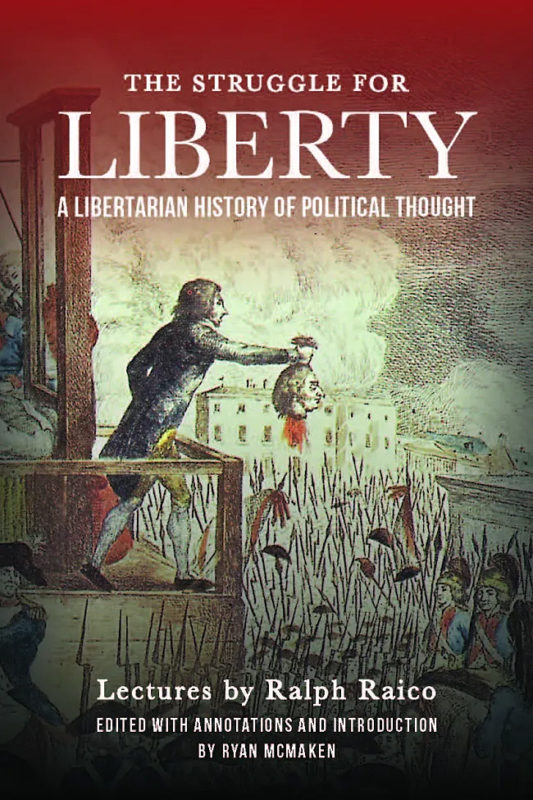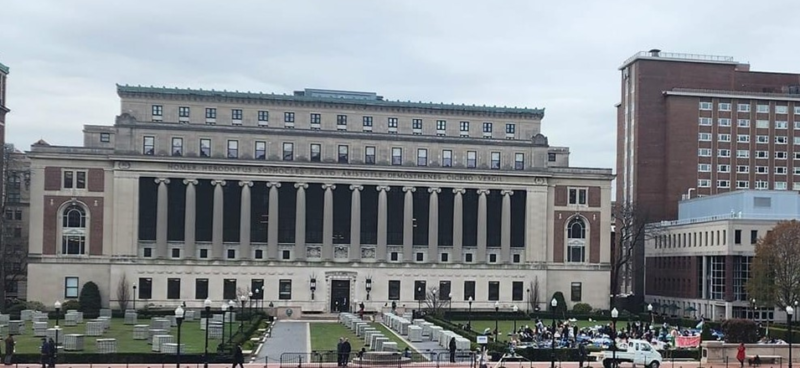Category Archive: 6b.) Mises.org
What Might Austerity Look Like in 21st-Century America?
The word “austerity” is defined as sternness or severity of manner or attitude; extreme plainness and simplicity of style or appearance; conditions characterized by severity, sternness, or asceticism; or a way of life that limits luxuries. Austerity is also defined as a set of policies that reduce government spending and increase taxes. These policies can include “austerity measures,” often used during economic crises, including cutting government...
Read More »
Read More »
The Far-Left’s Violent Attacks on Tesla are Revealing
In recent weeks, there has been a sharp increase in violent attacks aimed at destroying cars and other property carrying the logo of Elon Musk’s electric car company, Tesla. In Colorado, a woman was charged with using Molotov cocktails to set multiple cars at a Tesla dealership on fire before painting the word Nazi on a store sign. In Oregon, one man fired a rifle into one Tesla dealership while someone else fired shots and threw explosives into...
Read More »
Read More »
The Far-Left’s Violent Attacks on Tesla are Revealing
What is the Mises Institute?
The Mises Institute is a non-profit organization that exists to promote teaching and research in the Austrian School of economics, individual freedom, honest history, and international peace, in the tradition of Ludwig von Mises and Murray N. Rothbard. Non-political, non-partisan, and non-PC, we advocate a radical shift in the intellectual climate, away from statism and toward a private property...
Read More »
Read More »
Fourteenth Amendment DEI Lawfare
The politics of the Fourteenth Amendment recently returned to global attention when Colorado attempted to remove President Donald Trump’s name from their presidential election ballot, an attempt that was thwarted by the United States Supreme Court ruling that “Colorado cannot enforce section 3” of the Fourteenth Amendment as states lack power to do so. The jubilation with which the Supreme Court intervention was greeted overshadowed any concerns...
Read More »
Read More »
How Executive Power Can Dismantle the Deep State
What is the Mises Institute?
The Mises Institute is a non-profit organization that exists to promote teaching and research in the Austrian School of economics, individual freedom, honest history, and international peace, in the tradition of Ludwig von Mises and Murray N. Rothbard. Non-political, non-partisan, and non-PC, we advocate a radical shift in the intellectual climate, away from statism and toward a private property...
Read More »
Read More »
Cuts to Foreign Aid Are a Good Start
On January 20th, the Trump administration indicated it would pause foreign aid to most countries for 90 days. Newly-confirmed Secretary of State, “Little” Marco Rubio, confirmed this and paused “all new obligations of funding, pending a review, for (U.S.) foreign assistance programs funded by or through the Department and USAID.”He also recently floated closing USAID permanently and merging it with the State Department. It is right to credit the...
Read More »
Read More »
Ralph Raico’s Master Class on the History of Political Thought
[This article is the introduction to The Struggle for Liberty: A Libertarian History of Political Thought, by Ralph Raico, now available in the Mises Book Store, online at mises.org, and at Amazon.com.]It is appropriate, unfortunately, that Ralph Raico (1936–2016) begins this series of lectures with an anecdote about Lord Acton. Acton, as Raico notes, was an exceptionally erudite historian and a proponent of radical laissez-faire liberalism—also...
Read More »
Read More »
Kennedy Assassination Mysteries
Why should we care today about the assassination of President John F. Kennedy on November 22, 1963? That fateful day in Dallas is, after all, a long time ago: those of us, like me, who can remember the day are at least in their sixties. The short answer is that it reveals something essential for us to know about the American government and the Deep State that runs it.Kennedy had become deeply suspicious of the CIA and other American intelligence...
Read More »
Read More »
Oops, Trump Just Bankrolled the Protesters He Intended to Silence
I’ve been thrilled with much of what Donald Trump has done as president. He’s working to end the Ukraine war, secure the border, end the war on cryptocurrency, and cut government waste—all things I strongly support. But cutting federal funding over campus protests backfired so badly, it convinced Columbia’s most insufferable activists that they actually matter.Last Friday, the Trump administration announced it was cutting $400 million in federal...
Read More »
Read More »
The New Higher Education “Arms Race”
Forty years ago, collegiate institutions competed to attract the last big surge of baby-boomer 18-year-olds, offering campus amenities—fancy dormitories, swanky recreation centers with climbing walls, upgraded athletic facilities, palatial dining halls—that were, at the time, derisively described as an “arms race” among schools.I once asked the then-president of my own alma mater—an east coast liberal arts college—how the school justified spending...
Read More »
Read More »
Thomas Aquinas and the Subjective Theory of Value
Thomas Aquinas is, without doubt, the greatest Roman Catholic philosopher and theologian when it comes to the depth of his thought and the degree of his influence. Although this is the case, it might seem strange at first to see him mentioned in relation to the history of the subjective theory of value. It was Rothbard nonetheless who first pointed out that the direct ancestor of the Austrian School is the Salamanca School, a Roman Catholic school...
Read More »
Read More »
Dismantling the Department of Education?
President Trump’s proposal to dismantle the Department of Education is one step closer to an open, market-based system of education. The ultimate goal is a free-market system of education in which parents, teachers, and students are able to make their own choices about education, rather than being dictated by federal mandates.One of the most persuasive arguments against the Department of Education is that it holds on to a one-size-fits-all...
Read More »
Read More »
We Can’t Fix International Organizations like the WTO. Abolish Them.
In a recent Springer publication, Marcos Falcone proposed “Bringing the Austrian School into the 21st century” by embracing existing international institutions as a means of maximizing global liberty. Acknowledging that they are often justly criticized for being bureaucratic and ineffective, Falcone argues that they have historically contributed to economic growth and democratization and that all that is needed are two key reforms to strengthen...
Read More »
Read More »
Richard Murphy, The Bank of England, And MMT Confusion
Professor Richard Murphy is a public supporter of Keynesian fallacies and MMT. He recently provided a glimpse into this increasingly popular perspective by alleging that the Bank of England is deliberately crashing the economy by reducing its Asset Purchase Facility (APF).The latest budget increased government spending, borrowing, and taxes. But as MMT advocates seek to unburden governments from borrowing and think that taxes should be used as a...
Read More »
Read More »
Free Markets Promote Peaceful Cooperation and Racial Harmony
In Human Action, Ludwig von Mises highlights the importance of human cooperation as a prerequisite for the division of labor and free exchange. Without this, humanity remains mired in poverty:The “state of nature” that the reformers and utopians depicted as paradisiac was in fact a state of extreme poverty and distress. “Poverty,” says Bentham, “is not the work of the laws, it is the primitive condition of the human race.” Even those at the base of...
Read More »
Read More »
The Precarious State of the American Economy
What is the Mises Institute?
The Mises Institute is a non-profit organization that exists to promote teaching and research in the Austrian School of economics, individual freedom, honest history, and international peace, in the tradition of Ludwig von Mises and Murray N. Rothbard. Non-political, non-partisan, and non-PC, we advocate a radical shift in the intellectual climate, away from statism and toward a private property...
Read More »
Read More »
Why Price Deflation Doesn’t Hinder Investment
What is the Mises Institute?
The Mises Institute is a non-profit organization that exists to promote teaching and research in the Austrian School of economics, individual freedom, honest history, and international peace, in the tradition of Ludwig von Mises and Murray N. Rothbard. Non-political, non-partisan, and non-PC, we advocate a radical shift in the intellectual climate, away from statism and toward a private property...
Read More »
Read More »
Trump is Wrong on Trade
Trumps claims that America has lost high paying manufacturing jobs to China because the communist country promotes its exports through subsidies, tax advantages and currency manipulations. The reality is that we should not care what China does. The more China subsidizes its industries, the more its trading partners gain in the abundance of cheap goods and services and, contrary to what Trump believes, in the creation of high-paying jobs. In an...
Read More »
Read More »
Trump’s False Tariff “Fairness” Argument
President Trump’s argument for starting an international trade war is based on a socialistic-sounding plea for “fairness” and equality. Some foreign governments plunder their citizens with high tariff taxes on American imports, thereby forcing them to pay higher prices for those or competing domestic goods. The reason they are called “protective” tariffs is that they “protect” consumers from lower prices. When your foreign competitor is forced to...
Read More »
Read More »
The Abominable Tariff
[The Tariff Superstition: Why Protectionism Always Fails and Who Really Pays the Price by Marcel Kadosa. Translated by Bálint Téborski. Eger, Hungary, 2025. 159 pp.]Hungary in the years after World War I isn’t generally associated with a movement that supported the free market, but Bálint Téborski—whom we have to thank for The Tariff Superstition—tells us that,…this little gem of a book long forgotten for countless decades until we managed to...
Read More »
Read More »





















